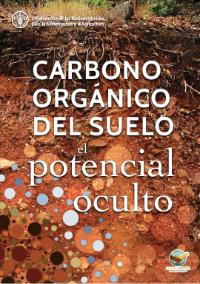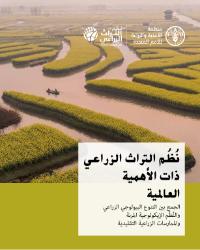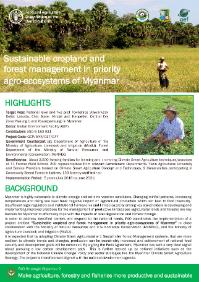Focal point
Location
The Food and Agriculture Organization of the United Nations leads international efforts to defeat hunger. Serving both developed and developing countries, FAO acts as a neutral forum where all nations meet as equals to negotiate agreements and debate policy. FAO is also a source of knowledge and information. We help developing countries and countries in transition modernize and improve agriculture, forestry and fisheries practices and ensure good nutrition for all. Since our founding in 1945, we have focused special attention on developing rural areas, home to 70 percent of the world's poor and hungry people.
Members:
Resources
Displaying 276 - 280 of 5073Eswatini (formerly Swaziland) and FAO
Eswatini (formerly Swaziland) and FAO have partnered since the country joined the Organization in 1971. FAO assistance has covered the
formulation and implementation of food security and nutrition policies, including risk reduction and management strategies,and activities to increase agricultural productivity. More recently, cooperation has included a focus on market access andagricultural competiveness, with support to smallholders’ transition from subsistence to commercial agriculture. Emphasis isCarbono orgánico del suelo - el potencial oculto
La publicación fue lanzada durenate el Simposio Internacional de Carbono Orgánico del Suelo (GSOC) que se llevó a cabo en la sede de la FAO (Roma, 21 a 23 de marzo de 2017). La publicación provee una revisión sobre los principales datos y hechos científicos sobre el estado actual del conocimiento así como las principales lagunas de conocimiento sobre Carbono Orgánico del Suelo. Realza cómo se puede implementar la información mejorada y las buenas prácticas para apoyar a eliminar el hambre, adapt arse a y mitigar el cambio climático así como lograr en general el desarrollo sostenible.
نُظُم التراث الزراعي ذات الأهمية العالمية
قامت منظمة الأغذية والزراعة بوضع " نُظُم التراث الزراعي ذات الأهمية العالمية" للمساعدة في صون نُظُم الزراعة التقليدية البارزة وإدارتها إدارة متكيفة. وتعتمد هذه النُظُم على الممارسات الزراعية التي تعود إلى قرون والمعارف المتراكمة على مدى قرون للتكيف مع السمات الفريدة للمناظر الطبيعية المحلية وإنشاء نُظُم بيئية غنية بالتنوع البيولوجي والمرونة وذات طابع مميز.
Nitrogen inputs to agricultural soils from livestock manure. New Statistics
The global agricultural sector today faces the double challenge of feeding a growing population while preserving the underlying natural resources of land, water and air. In the meantime, already a third of the world’s soils are degraded. Soil and nutrient management techniques aimed at restoring soil health will therefore be essential to meeting these challenges.
Sustainable cropland and forest management in priority agro-ecosystems of Myanmar
The project brief includes information about the details of the project, the background, objective, description and key achievements of the project.
It also mentions about how the project will implement the operations to achieve Sustainable Development Goals of FAO in line with the Strategic Objectives of FAO.Through the project brief, the audience will get clear understanding on how the project operates and what advantages it will bring for the beneficiaries.










